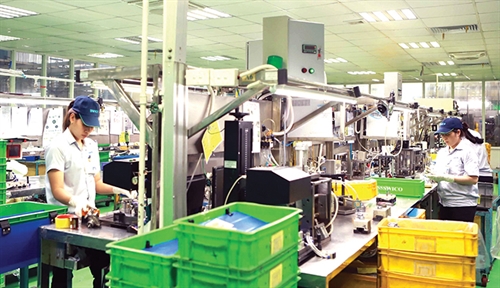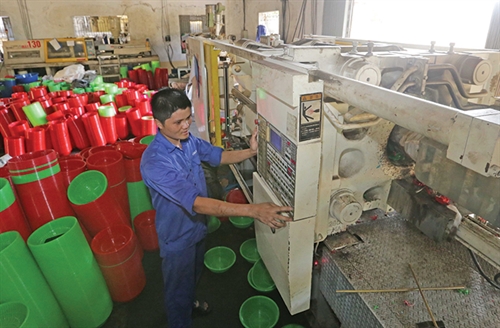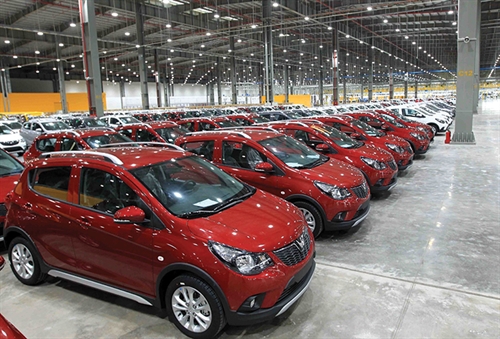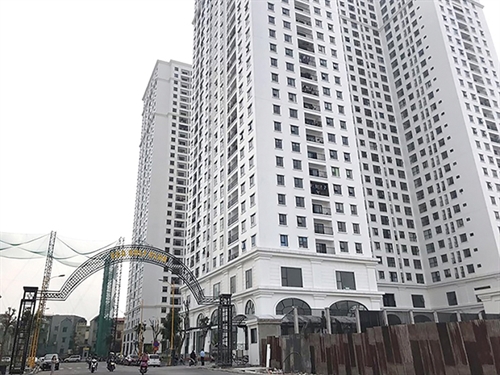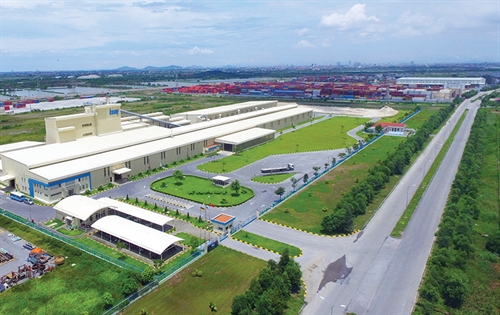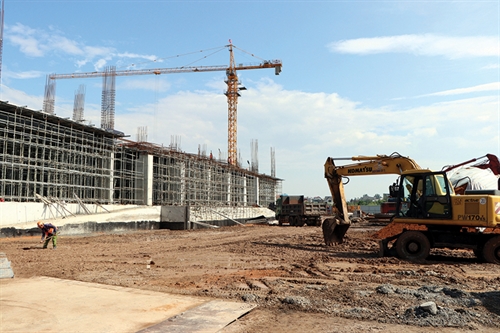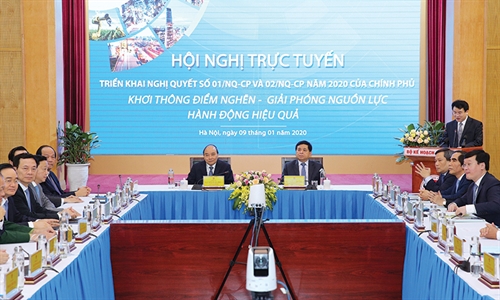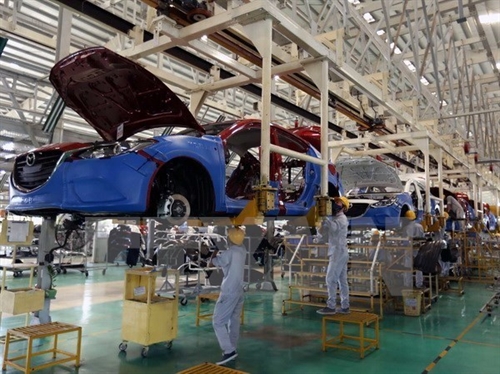The fast growth of the Vietnamese economy over the past years has driven a rapid increase in demand for energy, especially renewable energy. Under the Amended National Power Development Plan for the Period from 2011 to 2020, with a vision toward 2030, it is expected that renewable energy will account for 10.7 percent of the total power capacity of 572 billion kWh by 2030. The Government’s outlook requires a high demand for capital, including loan capital. In this regard, the project finance should play a significant role in meeting that expectation. Generally, the lenders will expect perfected security interests over all of the property and assets of the project company. This article discusses notable issues in taking security over the immoveable assets of renewable energy projects.
Ngo Thai Ninh and Thieu Dong
Immoveable assets eligible for mortgage
By law, assets could be categorized into two main types, namely immoveable assets and moveable assets.[1] Immoveable assets generally include:[2]
(i) land;
(ii) houses, construction structures and other assets attached to land (e.g., buildings, plants); and
(iii) assets attached to houses and construction structures.
Moveable assets are assets other than immoveable assets (e.g., equipment, inventory, bank accounts and securities).[3]
Secured assets could either exist at the time of the creation of the security or be formed in the future but in any case, must satisfy the following conditions:[4]
(i) be under the ownership of the securing party; and
(ii) be identifiable.
For the time being, under Vietnam’s law, an economic organization, subject to the land lease or allocation type, is entitled to mortgage the land use right[5] and assets owned by it attached to the land with credit institutions authorized to operate in Vietnam. In particular:
(i) if the economic organization leases land from the State with annual rent payment, it may only mortgage assets attached to the land, which are under its ownership, to credit institutions authorized to operate in Vietnam;[6] or
(ii) if the economic organization (a) leases land from the State with one-off rent payment for the entire lease term; or
(b) is allocated the land by the State with collection of land use levy, it may mortgage the land use right and assets attached to the land, which are under its ownership, to credit institutions authorized to operate in Vietnam.[7]
If the economic organization is allocated the land by the State without collection of land use levy, it is not permitted to mortgage its land use right to a third party.[8] It is not clear whether the economic organization can mortgage assets under its ownership and attached to the land which is allocated by the State without collection of land use levy to a third party or not. The former regulations paved the way for it to do so under such circumstance.[9] The prevailing law has nonetheless expunged such regulations and thus left the permissibility of land-attached asset mortgage to a third party in profound silence.
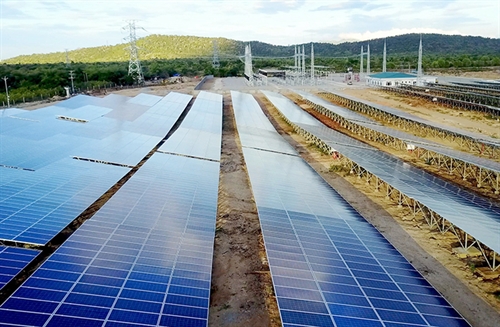 |
| A solar farm in Ninh Thuan province__Photo: VNA |
The current laws also bar foreign lenders from taking security interests over the land use right and assets attached to the land, even through a security agent authorized under Vietnam’s law to take the security over such assets (e.g., a Vietnamese bank). Given the foregoing limitation imposed by the laws, in certain financing transactions, the foreign lender may engage a Vietnamese finance party in a syndicated financing transaction whereby the Vietnamese finance party will provide a nominal facility amount to take security over the land use right and assets attached to the land and the foreign finance party would be able to take security over the surplus from proceeds from enforcement of the security over such rights and assets perfected by the Vietnamese finance party. The recognition of such mechanism before Vietnamese courts is still a dubious issue.
The regulatory limitation has also hampered the creation of security over solar panels or wind turbines which form a considerably valuable part of power plants. In this regard, it is unclear whether solar panels or wind turbines installed in farms are considered assets attached to the land so foreign lenders may not take security over such assets. Conceptually, given solar panels and wind turbines are not driven directly to the land but through mounting structures for solar panels or towers for wind turbines, solar panels and wind turbines would be arguably considered assets attached to construction structures (i.e., mounting structures or towers) and would be included in a security package available to foreign lenders.
On a related note, given the renewable energy sector is among sectors and trades entitled to specially investment incentives,[10] subject to the location of the project (i.e., whether the project is implemented in the geographical areas with specially difficult socio-economic conditions or in the geographical areas with difficult socio-economic conditions), the project company will be entitled to the exemption of rental of land and water surface:
(i) for the entire lease term of the project if the project is implemented in the geographical areas with specially difficult socio-economic conditions (e.g., all districts of Ninh Thuan province); or
(ii) for 15 years after the period for preliminary construction of the project which will not exceed three years from the date of the land lease decision if the project is implemented in the geographical areas with difficult socio-economic conditions (e.g., Song Cau town of Phu Yen province or Bac Binh district and Tuy Phong district of Binh Thuan province).[11]
The foregoing incentives are subject to the application of the decision on the land rental exemption from the relevant provincial tax authority.[12]
Given renewable energy projects are generally implemented in the geographical areas with specially difficult socio-economic conditions and the geographical areas with difficult socio-economic conditions, renewable energy projects are conceptually entitled to the foregoing exemption of rental of land and water surface. However, the exemption seemingly has caused the financing parties to confront some problems when creating security over the land use right of the project.
Specifically, under the Land Law, for renewable energy projects:
(i) if the land user is entitled to a reduction of land use fees or land rent, the land user still has the right to mortgage the land use right and assets owned by it attached to the land to credit institutions authorized to operate in Vietnam;[13]
(ii) if the land user is entitled to an exemption of land use fees or land rent, the position of the land user is not as firm as that in the first case and the land user will not have the right to mortgage the land use right but assets owned by it attached to the land only to credit institutions authorized to operate in Vietnam.[14]
If the project company is entitled to, in the plain language, use or rent the land for free throughout the entire lease term of the project, it is manifested that the project company should not be entitled to the right to mortgage its land use right to credit institutions authorized to operate in Vietnam. However, it is less clear under the Land Law whether the exemption of land use fees or land rent mentioned under the Land Law includes the partial exemption of land use fees or land rent (e.g., exemption of land use fees or land rent for a limited period of time). Notwithstanding the unclarity of the Land Law, it stands to a reasonable understanding that the right interpretation of the Land Law should apply for the case of exemption of the entire land use fees or land rent. The exemption of land use fees or land rent for a limited period of time should be interpreted as the reduction of land use fees or land rent and therefore the entitlement to mortgage land use right to credit institutions authorized to operate in Vietnam in such case is still ensured. However, in practice, local authorities take different views on this issue and generally disregard the right of the project company to mortgage its land use right to the credit institutions in the case the project company is entitled to exemption of land use fees or land rent for a limited period of time. The law offers an option for the land user that is leasing land from the State with collection of a lump-sum payment of land rent for the entire lease term and entitled to the exemption of the entire land rent to waive the exemption to enjoy the right to mortgage its land use right to credit institutions authorized to operate in Vietnam.[15] In such case, the land user should perform financial obligations arising out of the land use in ordinary cases. The law is however still silent on the possibility for the land user entitled to the exemption of land use fees for a limited period of time to apply for the payment of the entire land rent in order to exercise the right to mortgage at hand.
Creation and perfection of security over immoveable assets
A security is created by an agreement between the securing party and the secured party. The security agreement will be effective as from the execution date, unless otherwise agreed by the parties or provided by law (e.g., land use rights mortgage agreement will be effective as from the time of registration in the cadastral register.[16] The security agreement over land use rights or the security agreement over the land use right and assets attached to the land must be notarized or authenticated save for the case where parties or a party to the security agreement are enterprises operating in real estate business; the notarization must be implemented at a notary office and the authentication must be implemented at the commune people’s committees.[17]
Generally, security interest created over property in Vietnam will be enforceable against third parties as from the time when, inter alia, the security is registered, or the secured party keeps or holds the secured assets (the “registration” or “registered”).[18] The security over the land use right and assets attached to the land of organizations will be registered with the Land Registration Office (LRO) under the provincial Department of Natural Resources and Environment (DONRE) or branches of the LRO where the immoveable assets are located.[19] The Center for Registration of Transactions and Assets of the National Agency for Registration of Secured Transactions under the Ministry of Justice (NARST) will register the security over moveable assets and other assets which are not aircraft, ships, land use rights and assets attached to the land. As a matter of practice, the security over solar panels and wind turbines in solar power projects and wind power projects are generally registered at the NARST.
The payment priority is provided under Vietnam’s law as follows:[20]
(i) where all securities are registered, the payment priority will be determined according to the order in which the securities are registered;
(ii) where there is security which is registered and security which is not registered, the obligation for which the security is registered will be paid first; and
(iii) where all securities are not registered, the payment priority will be determined according to the order in which the securities were created.-
